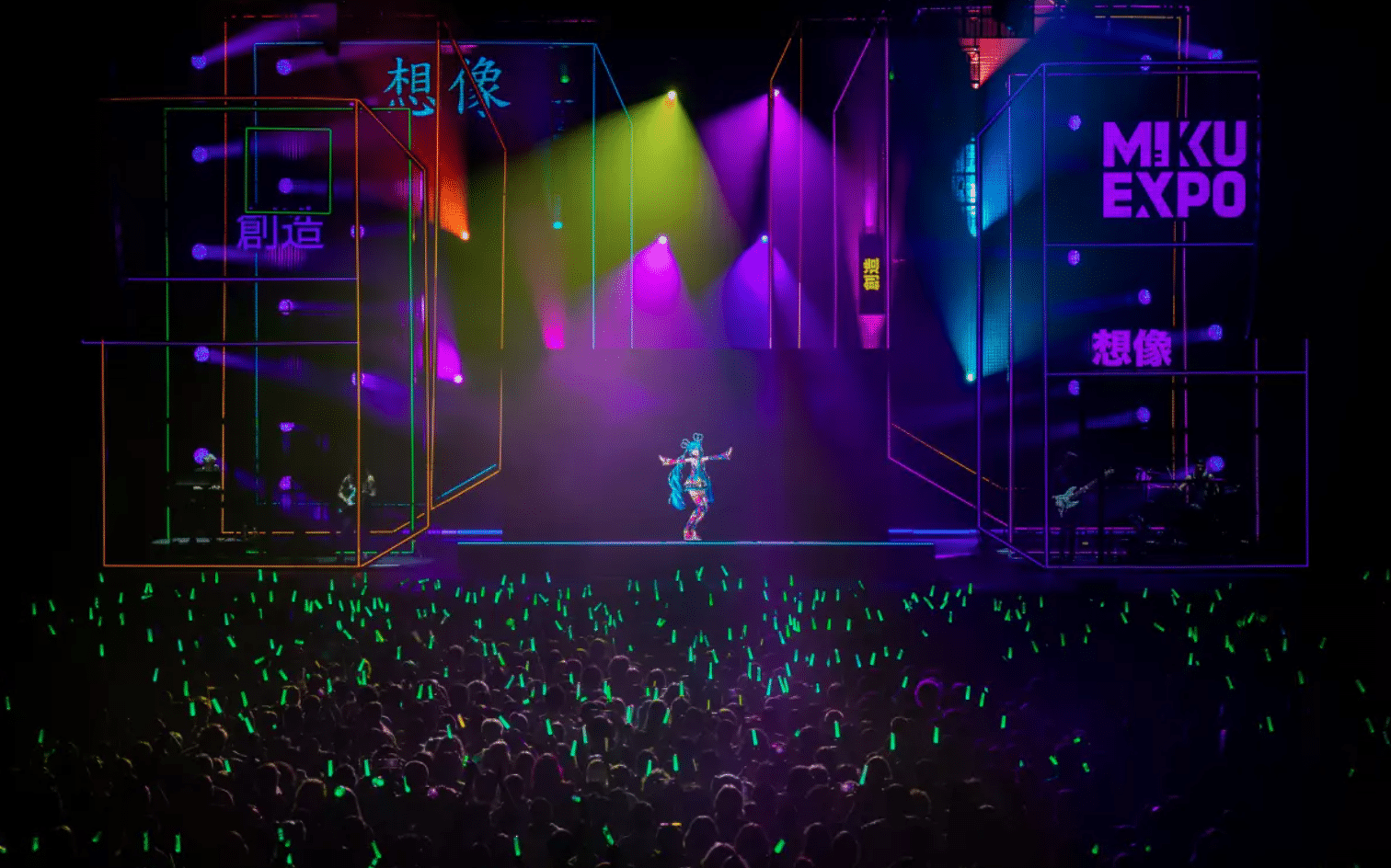Coachella is one of the largest and most influential music festivals globally. It’s well known for its diverse lineup of ‘big-time’ artists spanning multiple genres, from rock and indie to electronic and hip-hop. What we haven’t seen before, is the incorporation of non-human performers. However, on Friday night, Hatsune Miku, the turquoise-haired Japanese icon, graced the stage debuting her Coachella appearance.
This digital performer is a result of Vocaloid technology, an AI-powered system that creates songs mimicking human vocals, emerging from the creative minds at Crypton in 2007. Through Vocaloid technology, fans can actively participate in the creative process, shaping the music and performances of this avatar-like creation.
Since her inception, Hatsune Miku has embarked on global tours, captivating audiences as a holographic “performer” in live concerts, and gaining thousands of fans along the way. This technology empowers fans and involves audiences in a way that could only be possible through her digital presence. It gives every listener has the potential to be an artist themselves.
For brands and marketers, Hatsune Miku represents a golden opportunity to connect with today’s digital-native consumers. With her rising influence and appeal among younger demographics, partnering with virtual influencers like her offers a fresh avenue to reach audiences in the digital age. The Japanese icon has started branding agreements with various companies, including Google and Friday, saw her involvement in one of the world’s leading music festivals.
Hatsune Miku is one of many digital, non-human performers who are attracting the attention of brands and music fans. Miquela, another non-human digital influencer who has 2.6 million followers on Instagram, has collaborated with prominent brands such as Calvin Klein and BMW for commercial campaigns. Represented by the Creative Artists Agency (CAA), renowned for its roster of top-tier talent like Brad Pitt, Miquela stands as a new and exciting change in the digital marketing world.
Recognising the impact of digital influence, brands are embracing this paradigm shift to connect with audiences in new ways. Phil Quist, a music and emerging technology agent at CAA explained, “When you think about what that looks like moving forward, those kids are going to be so used to being in those realms that a lot of their entertainment is going to come from that space as well.”
Brands see this as an opportunity to stay ahead of the curve. So, that’s exactly what they are going to do, to be able to stay relevant in the evolving consumer landscape.
Image: MIKU EXPO 2024 North America Vancouver show





